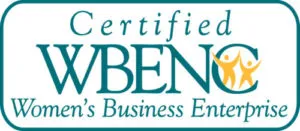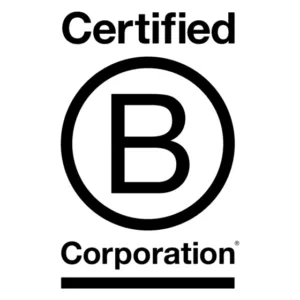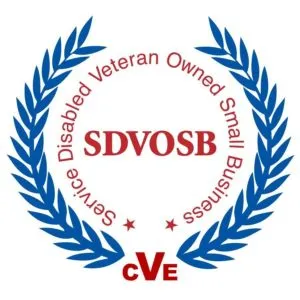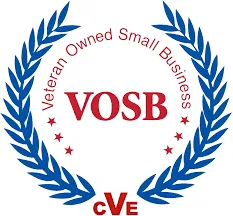5 Small Business Certifications to Consider

- One of the best ways a small business owner can stand out is by acquiring additional certifications that boost your credibility and solidify your expertise.
- While developing a comprehensive marketing strategy can help you define your brand, share your expertise, and stand out on social media, being able to point to a specific differentiator can truly set you apart from your competition.
- Once you’ve obtained your new certification, be sure to maintain your status by applying for renewal each year, and let your clients know by advertising on marketing and promotional materials.
One of the best ways for small business owners to stand out is by pursuing small business certifications that enhance their credibility and showcase their expertise.
Owning and running a small business requires extensive planning, constant problem solving, and efficient networking to be successful. While developing a comprehensive marketing strategy can help you define your brand, share your expertise, and stand out on social media, being able to point to a specific differentiator can truly set you apart from your competition.
One way to stand out is through certification. Certifications can help you gain access to specialized funding and scholarships, allow you to compete for set-aside contracts, and can be a great bonus to potential clients.
Here are five certifications to consider for your small business.
1. Women Owned Small Business (WOSB) and Women’s Business Enterprise (WBE) Certification

The U.S. Small Business Administration (SBA) offers two certifications for women-owned businesses. The Women Owned Small Business (WOSB) Certification provides exclusive access to competitive federal contracts. Qualifications for this certification include being 51% owned and primarily managed by one or more women.

The Women’s Business Enterprise (WBE) Certification provides eligibility to work on both private sector and government contracts. Qualifications are similar to the WOSB Certification, including a requirement that a woman must hold the highest position at the company and be active in daily management. The WBE Certification can help you reach business development goals by providing access to new contracts, networking opportunities, and training and education programs.
To begin the WOSB or WBE certification process, you can go through four SBA-approved third-party certifiers, or you can self-certify through the SBA.
2. Minority Business Enterprise (MBE) Certification

If your business is minority owned, there’s a lot to be gained from pursuing a Minority Business Enterprise (MBE) Certification including access to private sector and corporate contracts, networking events, searchable supplier databases, and even specialized financing. To qualify, minorities must own at least 51% of the business as well as meet other criteria.
3. B Corp Certification

B Corps are for-profit companies that must meet rigorous standards of social and environmental performance, accountability, and transparency. Think of B Corp Certification like a local farm becoming certified organic—it shows that your company is committed to being socially and environmentally responsible. With 66% of global consumers willing to pay more for brands committed to sustainability, this certification can significantly boost your company’s reputation and chances for success.
B Corp Certification can also serve as a valuable marketing tool to draw in new clients and investors while providing networking opportunities with fellow B Corp members. By achieving this certification, you’ll join the ranks of renowned brands like Ben & Jerry’s, Patagonia, and Warby Parker.
4. Veteran Owned Small Business (VOSB) and Service-Disabled Veteran-Owned Small Business (SDVOSB) Certification


As a veteran-owned small business, certification can provide access to prime federal government contracts and subcontracts through set-asides. Federal regulations help ensure small businesses get a fair share of work in the federal market, and federal agencies must set aside a percentage of their contracts for veteran-owned small businesses each year.
Veteran Owned Small Business (VOSB) and Service-Disabled Veteran-Owned Small Business (SDVOSB) Certifications require a series of steps, which can get a bit complicated, as there is no single government body or third party that manages the certifications. Start by getting certified as a veteran-owned business by registering with VetBiz Registry, a veteran business database. If you are service-disabled, you’ll need a disability status letter from the VA during the application process.
Once you’ve obtained VOSB or SDVOSB Certification, your company is eligible to participate in the U.S. Department of Veterans Affairs (VA) Veteran’s First Contracting Program, which provides access to set-aside contracts with the VA. After registering with the VA, you’ll also need to register with the Central Contractor Registration (CCR) to become eligible for government contracts. Lastly, if you’re interested in seeking larger contracts with the federal government, you’ll also want to register with the General Services Administration (GSA).
5. LEED Certification

If you operate your small business out of your home or an office building that you’re able to make structural or interior updates to, the Leadership in Energy and Environmental Design (LEED) Certification can offer tax credits, fee waivers, and grants.
One of the most popular green building certification programs, LEED is designed to encourage businesses to adopt sustainable designs. A ranking system assigns points based on building construction, design, operation, and maintenance. Based on the number of points you receive you can be awarded a Certified, Silver, Gold, or Platinum LEED Certification.
Becoming LEED certified demonstrates a commitment to environmental sustainability and can be a key motivator for clients as they consider your services. Your business can also realize financial savings by making changes such as installing fixtures to reduce water consumption, or maximizing natural light to cut back on electric bills.
Certifications can be a great way to differentiate your business. Once you’ve obtained your new status, be sure to maintain certification by applying for renewal each year, and let your clients know by advertising on marketing and promotional materials. Be sure to take advantage of perks that come with certification as well such as attending member events, participating in mentoring programs, or actively applying for new contracts.
Categories
Subscribe to the Insights blog to get weekly insights on the next way of working
Join our marketplace to search for consulting projects with top companies
Learn more about MBO
Learn how to start, run and grow your business with expert insights from MBO Partners
Learn how to find, manage and retain top-tier independent talent for your independent workforce.
MBO Partners publishes influential reports, cited by government and other major media outlets.
Research and tools designed to uncover insights and develop groundbreaking solutions.


